Today I have the extreme pleasure of introducing you to an amazing woman, Sarah Monterio of Farmhand Flowers in Germantown NY. Sarah and I met at The Seasonal Bouquet Project workshop back in October. She totally blew my heart wide open with her honesty, realness and courage.
Sarah is the real deal. She’s tough, smart as hell and gorgeous through and through. I hope this little peek into her world will inspire you as much as it did me. So without anymore delay, meet Sarah.
Welcome and thank you so much for being here to share a little slice of your flower journey! To start, can you tell us a little about your farming operation?
Farmhand Flowers consists of ¾ acre of annual flower production and ¼ acre of perennials. I manage another ½ acre of cover crop to rotate into. Besides flowers I grow smaller amounts of vegetables and medicinal herbs. Prior to Farmhand, the land was primarily used for organic vegetables. I feel lucky to be farming on land that has been well cared for and where a lot of important infrastructure was already in place like the barn, greenhouse, frost-free hydrants and even some fencing.
My farm is set within a larger 60 acre parcel that also hosts a few other awesome land-based projects: a vegetable CSA, a medicinal herb company, an apiarist and maple sugaring. It’s a pretty special place. The farm is in Germantown, New York, a quiet town along the east side of the Hudson River. We are just a few minutes south of Hudson, NY and about 2.5 hours north of NYC in the area known as the Hudson Valley.
Our zone is 5b, which means the general frost free-dates are around the 2nd /3rd week of May until early October. I try to extend the season on the early side as much as possible, but by the time a true killing frost happens in October, I’m ready to let the cycle move one. I throw row cover around for a bit, but am usually ready to let go! The weather here is as hard to predict as anyone’s, but we definitely have four seasons and winter can be long and cold. We get it all: strong spring winds, rain, sun, dry spells, odd hail storms in June, thunder and lightning and sometimes, perfect days with just the right breeze!
The soil is technically called Manlius channery and is classified as a silt loam. It’s rather heavy and rocky. The positive perspective is that I can irrigate less and there is a high percent of organic matter because it holds nutrients. The less enthusiastic perspective is that when it’s wet, it stays wet. At this scale, it’s something I can accommodate. If I were completely mechanized, it could be a real problem. Soil health and integrity are important to me and compaction can happen pretty fast here so, tractor tires and rototillers are not the best and something I take into consideration.
What do you currently specialize in? Any exciting new ventures on the horizon in the coming season?
Honestly, I’ve been involved in production vegetables for the past 7 years and the last 3 seasons have grown flowers on the side. Most recently I farmed with an awesome grower and dear friend at Sparrowbush Farm running a full-diet Winter CSA (think eggs, veggies, greens, grains, bread, cheese, kraut etc., etc.) It was actually a hard decision to transition out of that farm model, but I’ve daydreamed of a small acreage flower farm for many years and I just had to go for it. So, that’s what I’m doing!
This season I hope to have a flower stand in Hudson, NY (still in the works, but looking good!) I have a flower CSA for folks in Hudson/Germantown and a farmer’s market. Some of my crops will be available for wholesale. I tried to keep a balance this year and grow some varieties that I think are more fitting for designers and stick with what I know does well at market and in my fields.
I also have a small shop space here on the farm that will be open for retail hours through the summer, which is really exciting. I’ll have my flowers for sale, specialty plants and other farm goods that are produced here like our maple syrup! Plus, it’s right next to my main flower field and will be a beautiful space to stop by. I do offer both bulk stems and full-service floral work for weddings/events, but only a limited amount because they are lot to manage during the season.
I’m looking forward to refining the business side of my farm. I like the idea of growing crops for my specific needs and then having a few focus crops for wholesale/designers. I hope to establish relationships and grow specifically for designers, maybe the way farmers and chefs do. I also want to support the growers around me, if someone else owns land and wants to be the lilac grower – awesome! I’ll buy their lilacs for my events. There are a lot of fantastic growers in this area and being so close to NYC, a lot of amazing designers and plenty who are both!
I’m really happy to be surrounded by a lot of smarts, experience and know-how in farming and in design. I think many of us are trying to figure out how we can create our specific niche, while simultaneously participating in a bigger picture idea of how we can support each other. I think it’s that kind of interconnectedness and mutual support that is going to allow small farms to thrive and sustain this industry as a whole.
Something I am venturing into that is not a business idea, but super important and exciting for me is seed saving! It feels strange to have the skills to grow food, flowers and herbs, but lack the skills to save seed. I believe in having regionally appropriate and strong seed stock so, I’m excited to begin the process. I’m also doing a little bit of basic plant breeding.
I’m always so curious to know what other growers treasure in their gardens. Would you dish on your top five favorite flowers!?
Okay, I love Queen Anne’s Lace, Daucus carota not Ammi majus or visnaga, although I grow both of those. I love the architecture of it and I have a soft spot for those prolific roadside beauties that manage to thrive in any condition. I grew this one variety of purple carrot last year that held up really well late in the season and had gorgeous dark purple foliage. So, I stored some in the cooler and am re-planting the carrot root this spring to see what the flower looks like. It’s a total gamble, but I am really excited to see what comes of it.
Hyacinth Bean. The seed for this is pretty expensive, but I grew it in a tunnel last year and thought it was worth it. It has a similar habit/look as sweet peas, but it likes the heat. The foliage, stems and flowers are all beautiful purple shades and it has that awesome heart-shaped leaf of a bean. Plus, when the flowers drop there is a sweet little pod (that’s also edible) waiting for you beneath it!
Nasturtiums. I love nasturtiums. I’m pretty utilitarian which is annoying as a flower grower (I’m always trying to make things serve a double duty.) But, these are obvious for being gorgeous and edible. I just never tire of their lily pad leaf and how they continue to move and grow in the vase. I like when flowers continue to arrange themselves after I’m done.
Wisteria. It’s sort of unfair for me to call this a crop because I just happen to farm on land that already had a nice, established wisteria draping over the front fence. It will be one of the first things I plant when I have my own land. I love vines, I love plants that can creep up around us and create their own worlds. Wisteria is another one that I love for its sweet brevity. The farmer in me loves a workhorse for the obvious reasons: zinnias and rudbeckias make my life easier, but it’s the ephemeral ones that really get under my skin and haunt me.
Poppies. I adore poppies. To me, the ephemeral nature of poppies is what intrigues me with flowers. I like that they are a challenge (for me). I have never had great success with them, but I am determined. I’m pumped for the Champagne Bubbles series this year and I am trying (again) the Bread Seed variety. I like that I have to work for them, but I would not complain if I could get better germination!
There are so many folks out there dreaming of starting their own flower business. Do you have any words of wisdom or advice you’d be willing to share?
This is a tricky question because I took so long before I jumped into my own farm business and I doubt that’s always the best advice, but I’m a Capricorn and that’s how we role, slow and steady. However, having patience has its’ merits. For instance, it is far less stressful to learn about farm systems, machinery, scale, mistakes and successes while on someone else’s farm. Even working one season on a farm can give you a lot of insight and feel for the work. It’s okay to take your time and ease into it.
I think for many folks who really fall in love with farming, it’s how we imagine we will spend our entire lives. I want to become an old woman on my farm. I want to spend my life learning about farming and plants and weather. One day, I will know the seasons and land like they’re my own bones. I want that. I guess, my point is…. It’s okay to take your time getting there.
Life might be boring if we reached our destinations too quickly. When I’m feeling impatient about what my future farm will be, or when I will be able to afford farmland or have an acre of flowering woodland shrubs… I just think well, when I get there I will have the rest of my life to enjoy it, which means early mornings and pretty long days, for at least another 60 years…I hope.
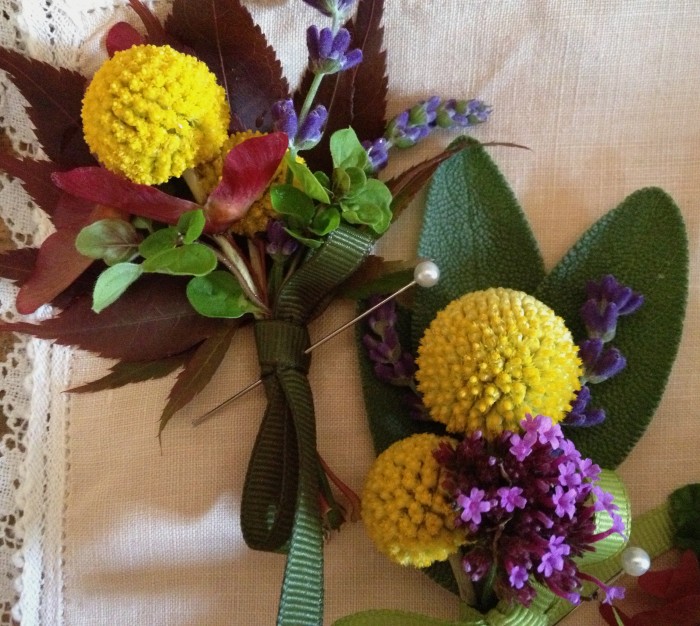
For more information on Sarah, her farm and her beautiful life visit:
Website: Farmhand Flowers
Instagram: @farmhandflowers

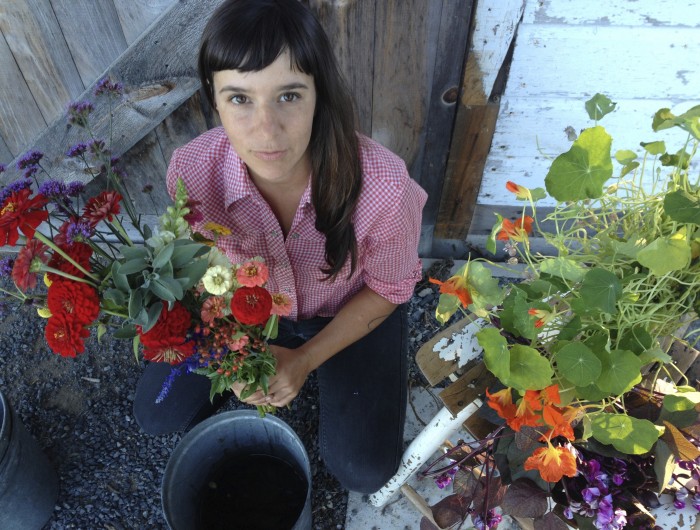
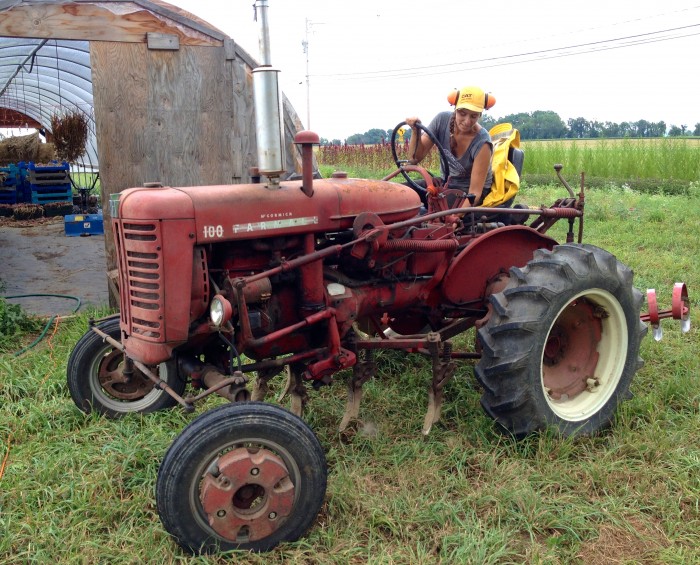
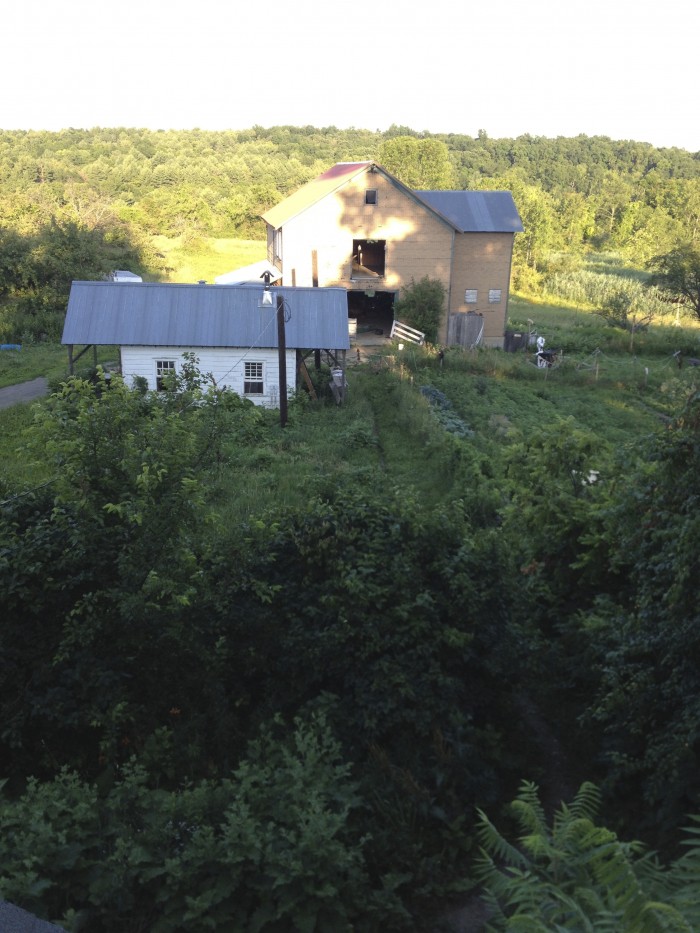
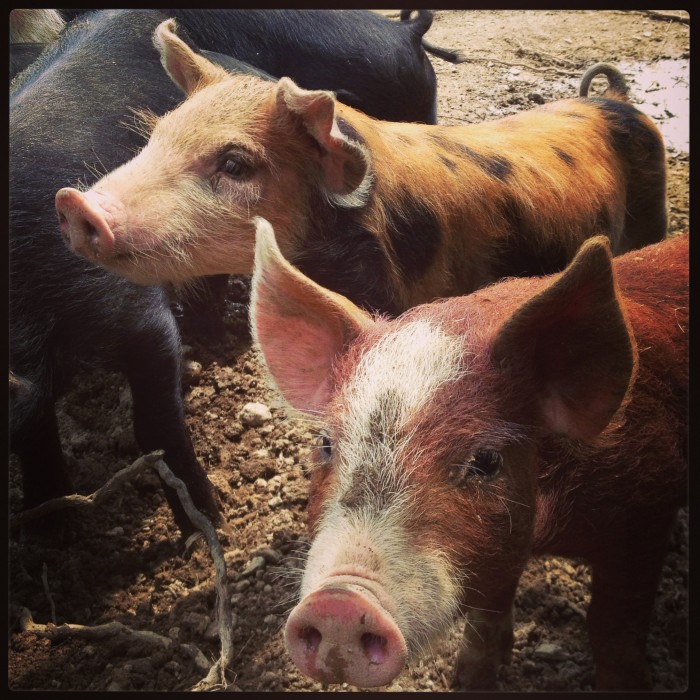
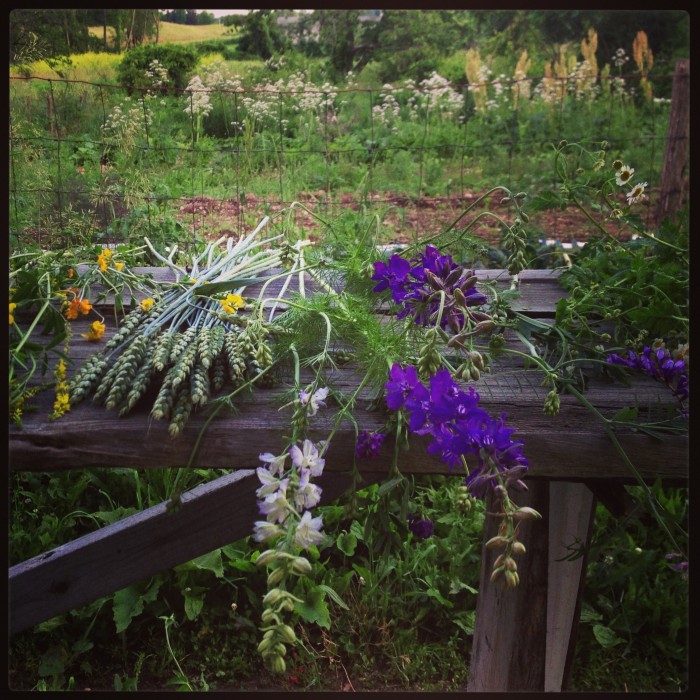
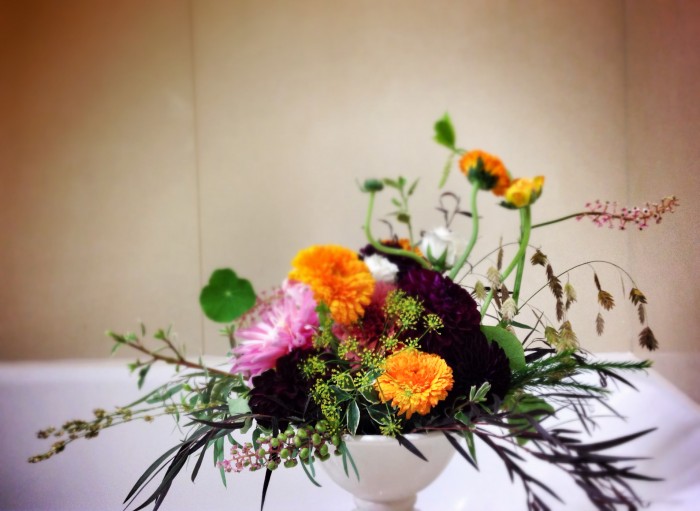
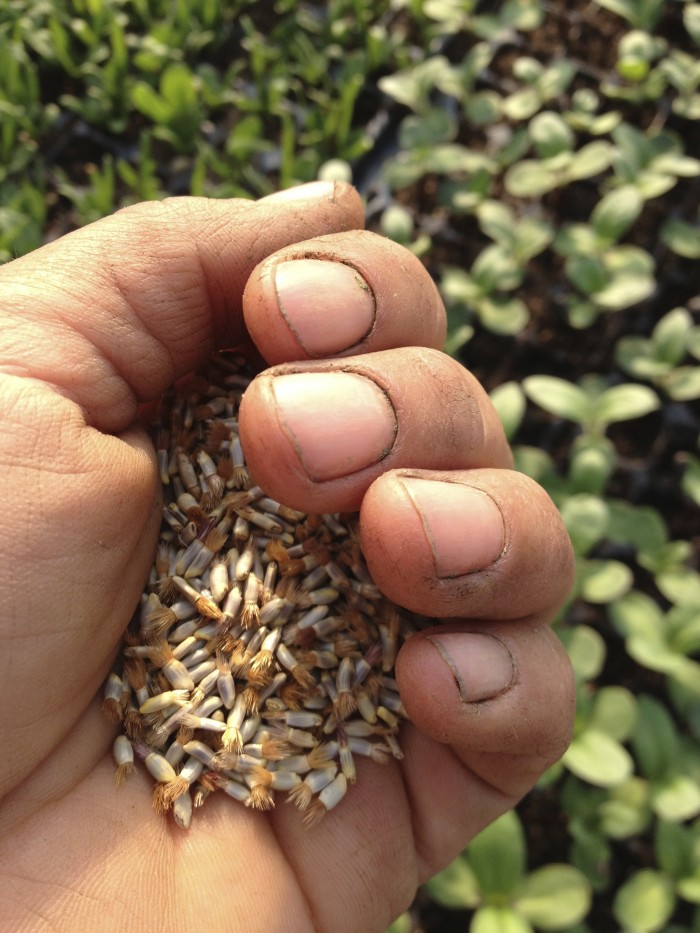
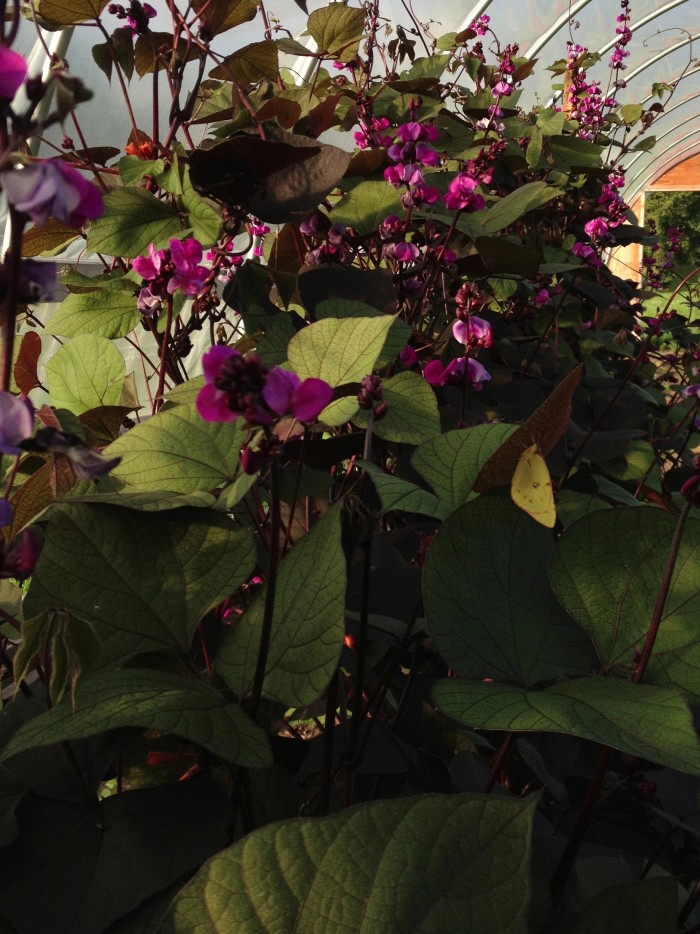
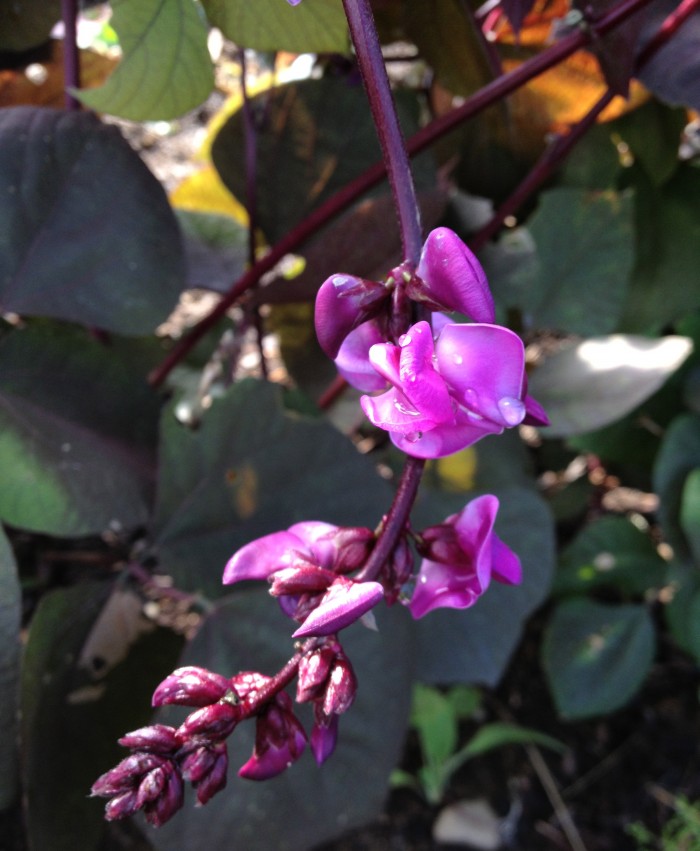
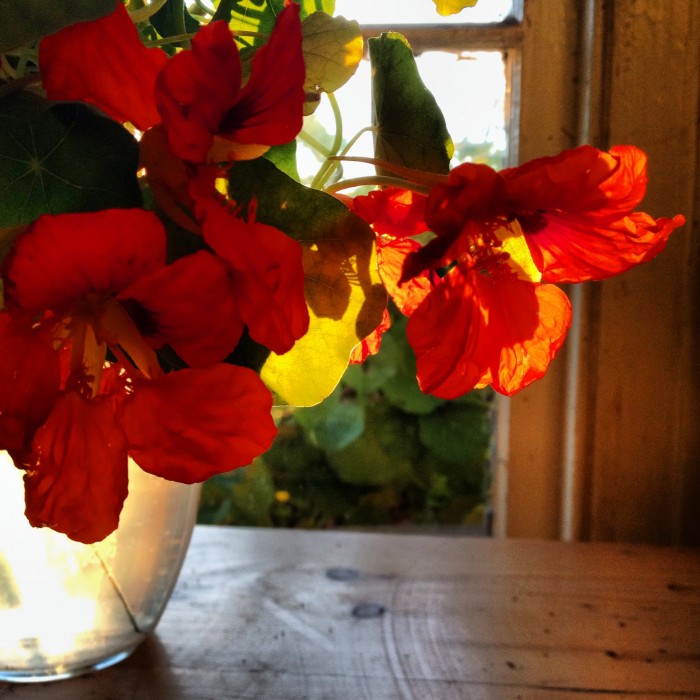
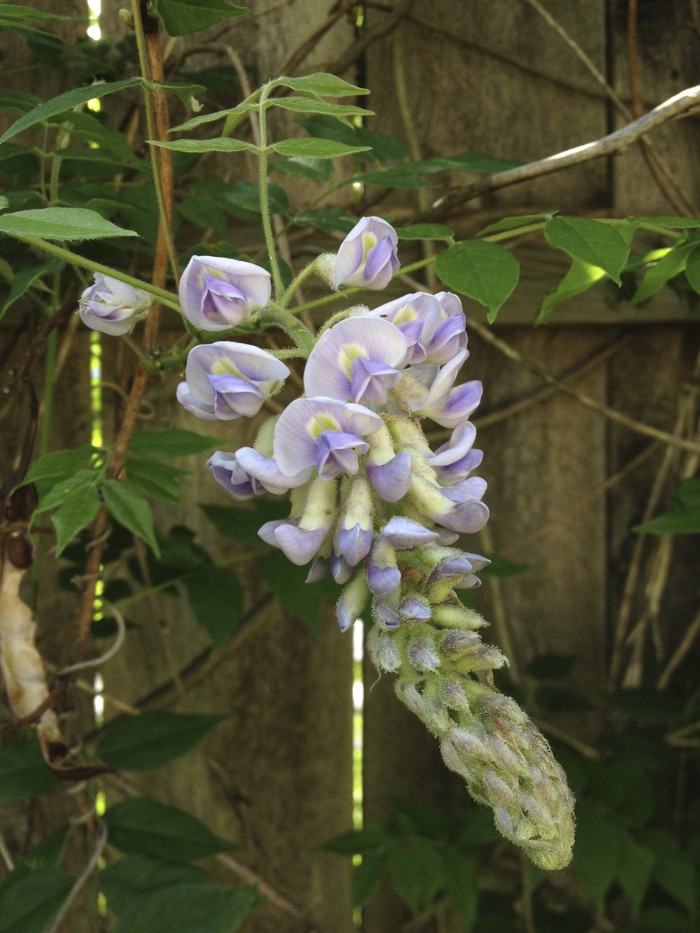
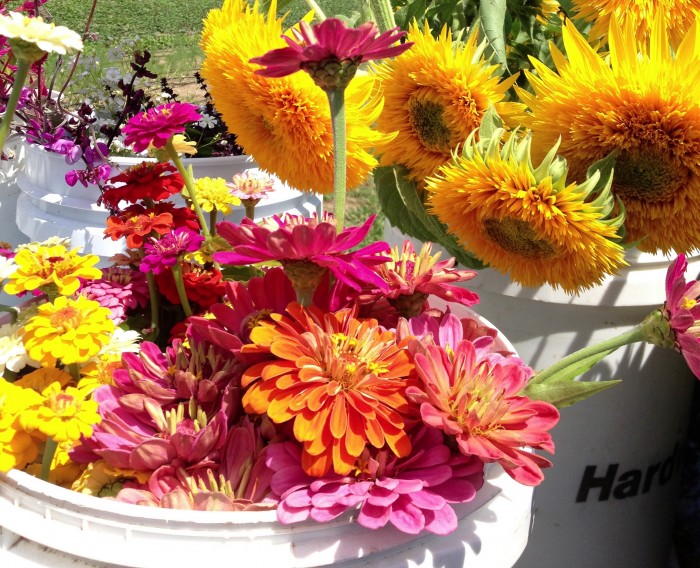
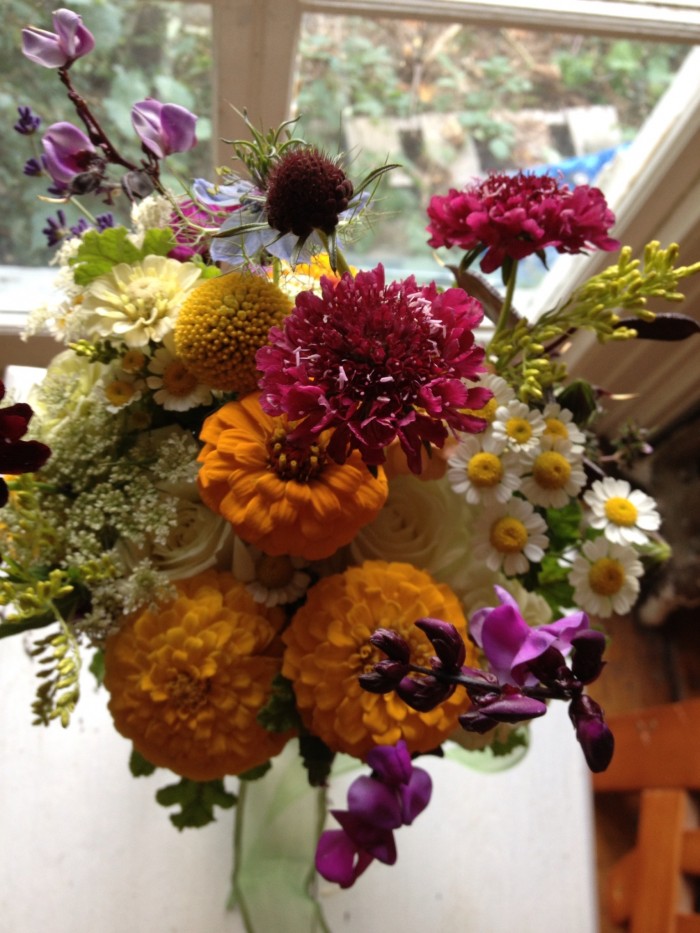
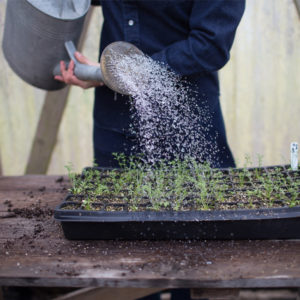
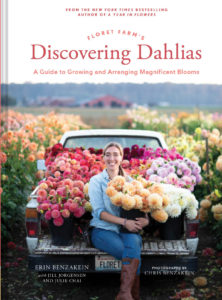
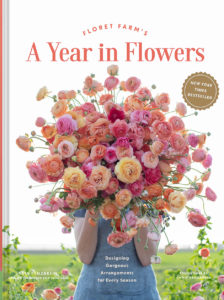
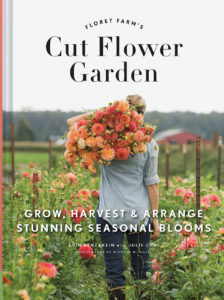

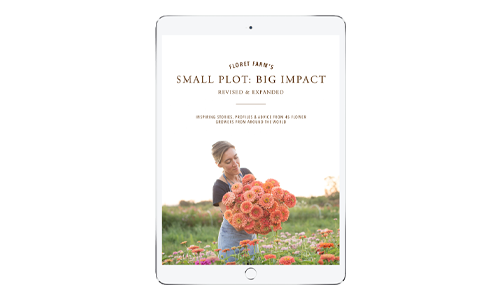
Berit macallister on
I’m reading the whole series and really enjoyed Sarah’s thoughtful pragmatic additude. My feelings are similar I am very interested in seed saving. Now I really want to grow hyacinth beans being in western NC we have sweet peas in and they are doing great so far but I think the heat might be too much for them. Thank you Erin I love all that you do and share with us.